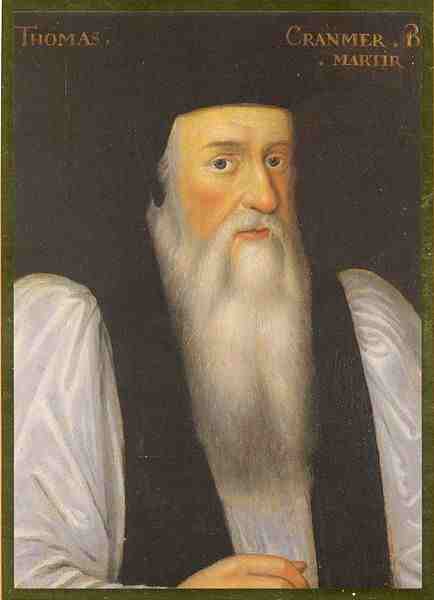 On this day in 1543, the Treaties of Greenwich were signed. In these treaties between England and Scotland, it was agreed that Prince Edward, the future Edward VI, would marry Mary, Queen of Scots.
On this day in 1543, the Treaties of Greenwich were signed. In these treaties between England and Scotland, it was agreed that Prince Edward, the future Edward VI, would marry Mary, Queen of Scots.
Here are records of the treaties from Letters & Papers:
"Treaty of peace with Scotland concluded by Wm. earl of Glencarne, Sir Geo. Douglas, Sir Wm. Hammiltoun, Sir Jas. Lermonth and Mr. Hen. Balnavis, commissioners of Mary Queen of Scotland, by the assent of Arran, with Audeley, Norfolk, Winchester, Westminster, St. John and Gage, commissioners of Henry VIII., providing:
(1) Peace during the life of either Prince and for one year after. (2) That neither Prince shall make or procure war upon the other or his confederates, or do anything to the hurt of the other. (3) If anyone, spiritual or temporal, even though pretending supreme authority, allied or connected with either Prince, shall do or procure any hurt to any territory of the other, the Prince shall not give, or permit his subjects to give, any aid thereto, notwithstanding any former contracts. (4) That neither Prince, upon pretext of any ecclesiastical sentence or censure, shall violate any article of this treaty; and that either party shall, within three months of this date, before notaries and in presence of ambassadors, publicly and in writing renounce all privileges, dispensations, &c., which might impede the effect of this treaty. (5) Neither Prince shall receive the other's rebels or traitors, but deliver them up within 20 days, upon letters of requisition; nor (6) homicides, robbers, and other fugitives, who shall be delivered within ten days. (7) Neither Prince to give safe-conducts to subjects of the other except upon the latter's written request. (8) Punishment of homicides, robbers, &c., on the Marches according to the laws of the Marches. (9) Ships, sailors and merchants to be well treated as in former times of peace, and specially in accordance with the treaty between Edw. IV. and James III. dated 1 June 1464. (10) Right of subjects whose goods are spoiled and carried across the March to follow in pursuit of them. (11) No dweller in either March or in the Debateable Ground to take timber out of the other March without obtaining leave. (12) The castle and town of Berwick with its ancient limits shall remain at peace. (13) The repairing or breaking of the fish garth of Esk shall not be held an attemptate against this treaty. (14) Fugitives of Scotland who have become lieges of the King of England to be treated as Englishmen, and similarly Englishmen, if any, who may have become lieges of the Queen of Scots as Scots. (15) Any subject of either Prince who, being despoiled by a subject of the other, shall of himself make reprisals, shall thereby forfeit his cause. (16) The island of Lundey in England and the lordship of Lorne in Scotland are not comprised in this peace; and (17) attacks upon them shall not be considered ruptures of this peace. (18) In this treaty are comprehended, for England the Emperor Charles, the king of the Romans and the Hanse and Teutonic companies, and for Scotland the Emperor Charles, the French king, the king of the Romans, the king of Denmark, the dukes of Gueldres and Holstein, the margrave of Brandenburg and the Company of the Teutonic Hanse; and all friends and confederates of both parties, unless they detain lands, pensions or goods of either party or molest his lands, in which case they shall not be held as comprehended. And all the said princes shall be held as comprehended under the above conditions, provided that within six months they certify by letter their acceptance of this comprehension. And the one party of the contrahents may be hired by the other to fight against any of those named in this article, all excuses set apart (et quod [alter]a [p]ars contrahentium ab altera poterit mercede et stipendio conduct at pro parte requirentis et conducentis contra quosvis in hoc articulo nominatos omni allegatione cessante militent). (19) Each prince to publish this peace throughout his Marches within thirty days from this date. (20) No article in this treaty shall derogate from the article of reformation of attemptates concluded in the truce made at Newcastle 1 Oct. 1533. (21) This treaty to be ratified within two months.
Commission of Mary Queen of Scots for the above dated 4 May 1543.
Commission of Henry VIII. for the marriage of Prince Edward with Mary Queen of Scots and for peace dated 17 June 35 (fn. 2) Hen. VIII.
Greenwich, 1 [July 1543.]
Lat. Large parchment, slightly mutilated. Printed by Rymer before the mutilation and described by him as signed and sealed by the Scottish commissioners."
"2. Treaty of marriage with Scotland concluded by the same commissioners, as follows :
(1) That Prince Edward, eldest son and heir apparent of Henry VIII., now in his sixth year, shall marry Mary queen of Scotland, now in her first year. (2) Upon the consummation of the marriage, if the King is still alive, he shall assign to the said Mary, as dower, lands in England to the annual value of 2,000l.; to be increased upon his death to 4,000l. (3) Until, by force of this treaty, the said Mary is brought into England she shall remain in custody of the barons appointed thereto by the Three Estates of Scotland; and yet, for her better education and care, the King may send, at his expense, an English nobleman or gentleman, with his wife or other lady or ladies and their attendants, not exceeding 20 in all, to reside with her. (4) Within a month after she completes her tenth year she shall be delivered to commissioners of England at the bounds of Berwick, provided that before her departure from Scotland the contract of marriage has been duly made by proxy. (5) Within two months after the date of this treaty shall be delivered into England six noblemen of Scotland, two of whom, at the least, shall be earls or next heirs of earls and the rest barons or their next heirs, as hostages for the observance on the part of Scotland of these three conditions, viz., the first and fourth articles of this treaty and the condition that if any of these hostages die he shall be replaced within two months by another of equal quality; Scotland, however, is to have power to change the hostages every six months for others of equal quality. (6) Scotland shall continue to be called the kingdom of Scotland and retain its ancient laws and liberties. (7) If after the marriage the Prince should die without issue the said Princess shall be at liberty to return into Scotland unmarried and free of impediment. (8) Upon her going into England, James earl of Arran, governor of Scotland, who meanwhile shall receive the fruits of that realm, shall receive an acquittance thereof from the King and Prince Edward, a convenint portion for her honourable entry into England reserved. (9) This treaty to be ratified within two months.
Commission of Mary Queen of Scots for the above, dated 4 May 1543.
Commission of Henry VIII. for the above marriage and the place dated 17 June 35 Hen. VIII.
Greenwich, 1 July 1543. Signed and sealed by the Scottish commissioner's.
Lat. Large parchment, mutilated. Seals good."
Notes and Sources
- Letters and Papers, Foreign and Domestic, Henry VIII, Volume 18 Part 1, January-July 1543, 804.



Leave a Reply